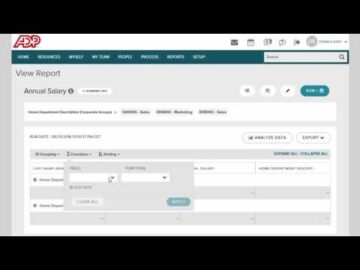
A Deferred expense or prepayment, prepaid expense, plural often prepaids, is an asset representing cash paid out to a counterpart for goods or services to be received in a later accounting period. For example, if a service contract is paid quarterly in advance, at the end of the first month of the period two months remain as a deferred expense. As the fiscal year progresses, the company sends the newspaper to its customer each month and recognizes revenue.
So, it can be concluded that because of the prepayment of insurance the company reports $15,000 as deferred expenses until June 15; when the next payment will be scheduled. Prepaid rents, deposits on products, insurance premiums, and service contracts are some of the examples of deferrals. A deferral also dictates the kind of adjusting entries made at the time of accounting. The distribution of income to sales does not sound like much for one subscription but think about doing it for a hundred or a thousand subscriptions.
Deferred payment: A special case of deferral
In order to abide by the matching principle, a deferral must be made to adjust for the prepaid rent expense. The “Deferred Revenue” line item depicts the unearned revenue that will be reported in a later period. Each month, 1/12th of the total year-long revenue for the service will be recognized once the customer receives the benefit. Like accruals, deferrals also have a critical role in ensuring financial statement reporting is kept accurate, consistent, and transparent for investors. During inflation, the monthly installment will increase as the property seller would want to compensate for the loss of the value due to higher prices.

The recognition of accrual and deferral accounts are two core concepts in accrual accounting that are both related to timing discrepancies between cash flow basis accounting and accrual accounting. In simple terms, deferral refers to delaying the recognition of certain transactions. It’s like saying, “Hold on, we’ve received this money or paid this expense, but let’s not record it as revenue or expense yet.” However, it wouldn’t be appropriate not to record anything at all, because money is still trading hands.
Deferral in Accounting Defined: What Is It? Why Use It?
This makes it a liability because the company still owes the goods or services to its customers. This revenue is recognized when the delivery of goods or services actually takes place. A debit entry signifies an increase in an asset — something owned — or a decrease in a liability — something owed — while a credit entry to these accounts indicates the exact opposite. While most cash transactions are entered immediately, an entry for revenue or an expense may be entered long after cash is paid or received. Rather, the figure is classified as a liability on the balance sheet of the magazine. When the sales revenue is added to the income statement each month during the subscription period, the entire monthly amount will be added before the total subscription is accounted for.

Here are some of the key differences between accrual and deferral methods of accounting. Suppose a company decided to receive a payment in advance for a year-long subscription service. When you leave a comment on this article, please note that if approved, it will be publicly available and visible at the bottom of the article on this blog. For more information on how Sage uses and looks after your personal data and the data protection rights you have, please read our Privacy Policy. Having understood the concepts of deferred revenue and deferred expense, let us now move on to the next section.
Is Deferred Revenue a Credit or Debit?
Accruals and deferrals are essential concepts in accrual accounting related to the timing discrepancies between the unearned revenue and the delivery of the product or service. Deferred revenues and expenses help businesses match their transactions and keep books balanced. Take them away, and the business will run into financial trouble due to huge payments or expenses received or paid prematurely. Businesses regularly make advance payments to vendors, suppliers, and other businesses for products and subscription-based services.
Omega Healthcare Investors (OHI) Q2 2023 Earnings Call Transcript – The Motley Fool
Omega Healthcare Investors (OHI) Q2 2023 Earnings Call Transcript.
Posted: Thu, 03 Aug 2023 21:30:56 GMT [source]
Most significant of these is a revision to the accounting for franchise taxes, which previously required accountants to weigh the likelihood that future taxes will be based on capital rather than income. This provision by itself is likely to impact companies doing business in New York, Illinois, and other states that impose corporate franchise taxes. One essential component of financial reporting is the concept of deferral, which plays a significant role in recognizing revenues and expenses. In this article, we will explore the meaning of deferral in accounting, its importance in financial statements, and why it matters to businesses and their stakeholders.
Does Deferring a Payment Hurt Credit?
Instead, the amount will be classified as a liability on the magazine’s balance sheet. As each month during the subscription term is realized, a monthly total will be added to the sales revenue on the income statement, until the full subscription amount is accounted for. During these same time periods, costs of goods sold will reflect the actual cost amounts to produce the issues that were prepaid. As the company fulfills its obligation—whether that’s shipping a product, providing a service, or anything else it was paid to do—it gradually reduces the liability on its balance sheet. Correspondingly, it recognizes that amount as revenue on its income statement.
Examples of unearned revenue are rent payments received in advance, prepayment received for newspaper subscriptions, annual prepayment received for the use of software, and prepaid insurance. Staying true to the accounting principles, it is no less a mistake to count such as norm expense or revenue. Deferrals in accounting are adjusting entries made for prepaid expenses and pre-delivery revenue. Accrual accounting recognizes revenues and expenses as they’re earned or incurred, regardless of when the actual cash is exchanged.
Monthly, the accountant records a debit entry to the deferred revenue account, and a credit entry to the sales revenue account for $100. By the end of the fiscal year, the entire deferred revenue balance of $1,200 has been gradually booked as revenue on the income statement at the rate of $100 per month. The balance is now $0 in the deferred revenue account until next year’s prepayment is made. The key benefit of accruals and deferrals is that revenue and expense will align so businesses can account for all expenses and revenue during an accounting period. If businesses only recorded transactions when revenue is received or payments are made, they would not have an accurate picture of what they owe and what customers owe them.
To summarize, deferrals move the recognition of a transaction to a future period, while accruals record future transactions in the current period. However, it’s crucial to distinguish deferred payment from deferred revenue. Deferred payment is from the buyer’s viewpoint—it’s about delaying the payment for goods or services. On the other hand, deferred revenue is from the seller’s perspective—it involves receiving payment for goods or services that will be delivered or performed in the future. In the case where the expenses are prepaid, there’s a creation of a debit asset account along with the cash payment. Franchise taxes are state or local taxes, generally based on the greater of a percentage of capital or a percentage of net income.
- This can misguide a potential investor into believing that his money will also be safe with the company in the future, given the amount of revenue it owns.
- So, when you’re prepaying insurance, for example, it’s typically recognized on the balance sheet as a current asset and then the expense is deferred.
- In the case where the expenses are prepaid, there’s a creation of a debit asset account along with the cash payment.
It focuses on content related to movies that are about to be released into cinemas. The buyer gets the needed goods or services immediately and the seller might secure a sale they workers compensation coverage through a peo otherwise wouldn’t, possibly charging interest or a higher price in return for the deferment. The major types of adjusting journal entries are Deferrals, Accruals, and Estimates.
This is done when the company has received the payment for a contract that has yet to be delivered. The insurance company receiving the $12,000 for the six-month insurance premium beginning December 1 should report $2,000 as insurance premium revenues on its December income statement. The remaining $10,000 should be deferred to a balance sheet liability account, such as Unearned Premium Revenues. In each subsequent month the insurance company will record an adjusting entry to reduce the liability account Unearned Premium Revenues by $2,000 and report $2,000 as Premium Revenues on its income statement. A deferred revenue journal entry involves debiting (increasing) the cash account and crediting (increasing) the deferred revenue account when payment is received. As the service is provided, deferred revenue is debited, and revenue is credited.
Until then, the company will report the respective amount on its balance sheet as deferred revenue. Accrual and deferral methods keep revenues and expenses in sync — that’s what makes them important. In accounting, deferrals and accrual are essential in properly matching revenue and expenses. An example of revenue accrual would occur when you sell a product for $10,000 in one accounting period but the invoice has not been paid by the end of the period. You would book the entry by debiting accounts receivable by $10,000 and crediting revenue by $10,000. For example, a client may pay you an annual retainer in advance that you draw against when services are used.

As you deliver the service over the year, you gradually reduce the liability and recognize it as revenue. Just as a prepaid expense is an asset that turns into an expense as the benefit is used up, deferred revenue is a liability that turns into income as the promised good or service is delivered. Just like the delicate balance of a see-saw, understanding and applying accounting principles like ‘deferral’ can mean the difference between smooth financial operations and a chaotic financial see-saw.

